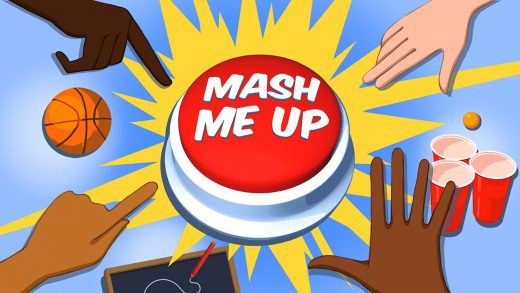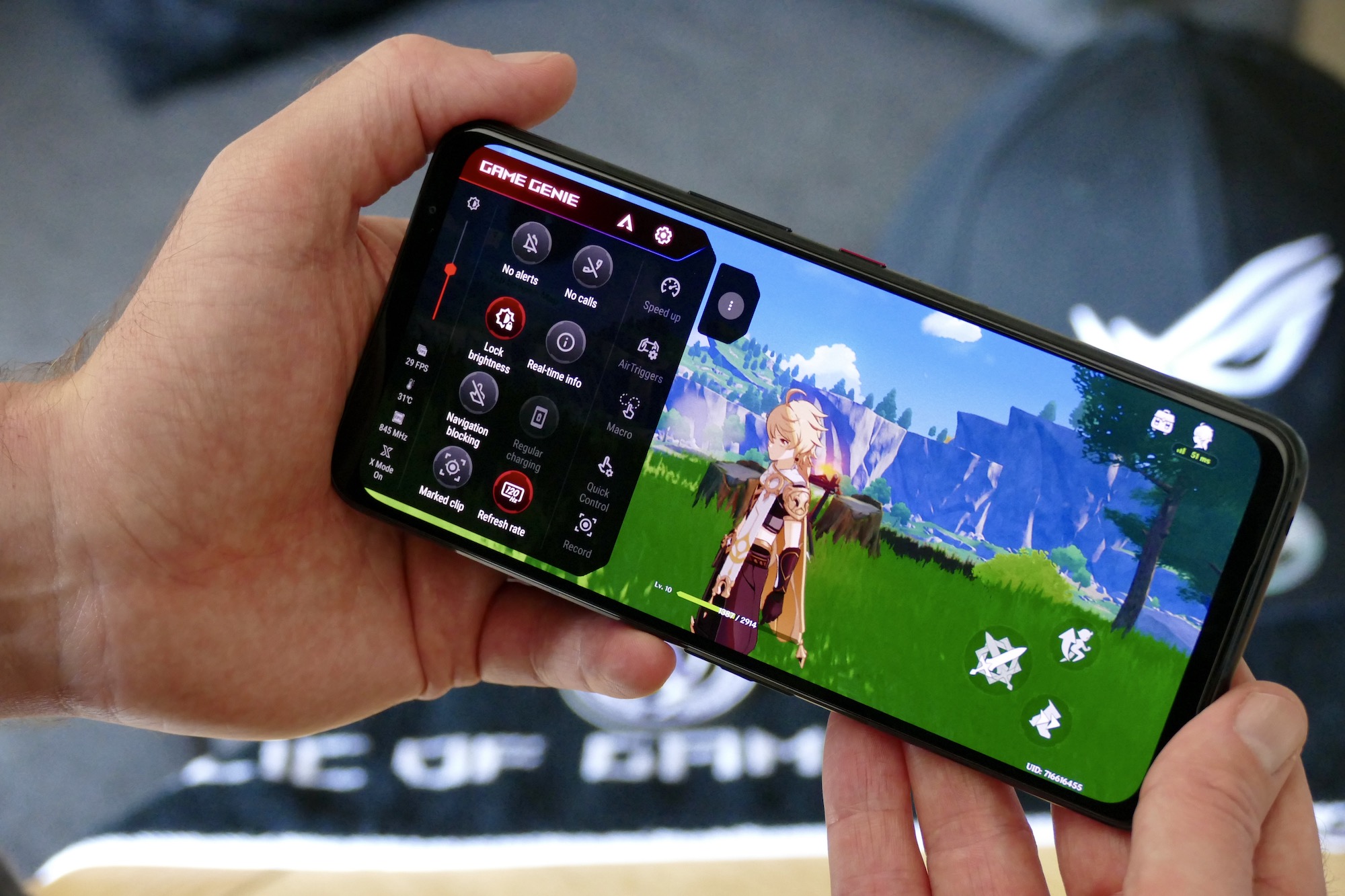
As an avid gaming enthusiast, mobile gaming has always appealed to me. However, despite my best efforts to get into gaming on my phone, I butted heads with it just about every step of the way because I found touchscreen controls to be truly awful. I figured that, unfortunately, enjoying games on a phone was reserved for people with the cash to buy luxury gaming phones with fancy shoulder buttons.
I couldn’t have been more wrong, and the solution was right in front of my face.
Early disappointment
Mobile gaming has been exciting for years, but I never quite felt like I was part of it for the longest time. This is partly because I didn’t end up with a smartphone until I was roughly 16 years old in 2014, and by this time I felt like I missed a lot of the app-based fun that I was constantly reading about online. By the time I did get a smartphone, a hand-me-down iPhone 4, I still didn’t really have a device capable of playing the cutting-edge titles being released as mobile gaming got more serious.
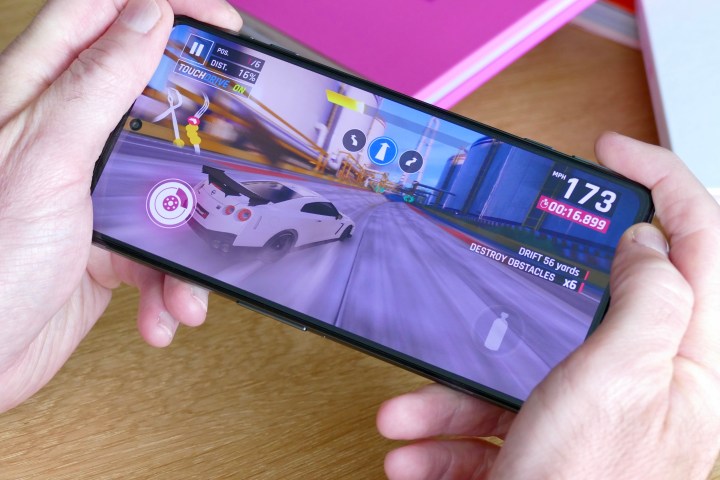
However, my excitement when I learned that I could play the iOS version of Minecraft was immense, so I downloaded the app and booted up the game (which seemed to run alright considering my phone), but was then met with disappointment.
I couldn’t play Minecraft Pocket Edition, not because of the lack of processing power chugging away from behind the display, but because of the terrible controls. It, like many mobile games, uses on-screen buttons to simulate a controller, just without any of the tactical feedback that comes from physically pushing a button. Given the fact that buttons are being removed from smartphones so fast you’d think their designers are afraid of them, this wasn’t the fault of the games, but was still an insurmountable issue for 16-year-old me.
Mobile games left me behind
I was crushed. It felt like I had finally gotten to experience the new frontier of gaming I’d been excited about, only to discover that I simply didn’t like it. Minecraft Pocket Edition wasn’t the only game I tried, but the problems I had with it were common. It ultimately turned me off from mobile gaming.
I didn’t need to buy a gaming phone in order to discover my love for mobile gaming.
From 2014 to 2021, I essentially wrote off mobile gaming as something I couldn’t engage with. I was constantly hearing about excellent mobile titles that I would try in the hope they would change my mind, but every time, without fail, I walked away defeated.
“People who love mobile games must just have expensive gaming phones with additional shoulder buttons that I could never afford,” I told myself. While that’s a possibility, it turns out that I didn’t need to buy a gaming phone in order to discover my love for mobile gaming this whole time.
Game-changing discovery
I bought a Backbone, a mobile controller that effortlessly plugs into my phone. I got it on sale expecting it to be the final nail in my mobile gaming coffin, but instead, it opened my eyes. Friends of mine had sung the praises of gaming on the go with recent titles like Genshin Impact, PUBG Mobile, and the huge library of premier console games ready to be streamed through Xbox Cloud Gaming. I didn’t understand how they were enjoying them until discovering many of them use a Backbone.
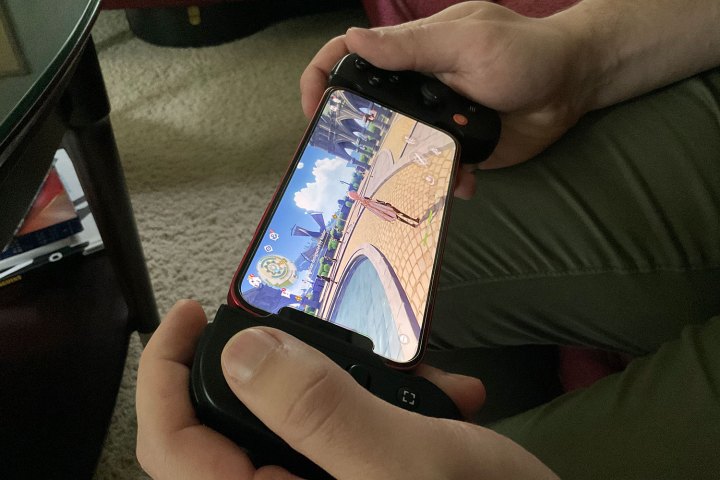
From there, I realized it wasn’t specific gaming phones that enabled many mobile gaming enthusiasts to enjoy the platform, but lesser-priced controller peripherals that are as portable as smartphones themselves. I bought my Backbone for $60, a fraction of the price of a gaming phone like the Asus ROG Phone 5 or even the Poco F4 GT, and can honestly say that the value I’ve gotten out of it has far exceeded the initial buy-in price.
Obviously, part of the appeal of mobile gaming is the relatively low cost. All you’ll need is a decent smartphone and, in theory, you should be good to go, but the purchase of an additional peripheral can really change the experience for the better. For example, Apex Legends Mobile recently launched and, while being a faithful adaptation of the console/PC versions, it’s something of a nightmare to play when relying on the on-screen button prompts. It, like many other mobile versions of console games, simply has too many mechanics in place to smoothly transition to a purely touch-based format. Luckily, that’s where the Backbone comes in.
Instead of requiring players looking to get serious about competitive mobile titles like Apex Legends Mobile to invest hundreds of dollars into a phone made with gaming in mind, any phone can be a serious gaming phone with the proper peripheral. While the Backbone is my go-to because of its small size, there are other mobile controllers like the RiotPWR ESL out there, and they offer tactile feedback when pressing buttons, and clear up space on the screen that would otherwise be obscured by my thumbs.
Do you have a Backbone?
Deciding to finally invest in a mobile gaming controller seems like such an obvious choice now that I’ve made it, but had I not, I might have missed an entire platform of gaming that I’ve come to love. With the rise in prominence of mobile gaming over the last few years, I’ve had a lot to catch up on, but the Backbone has removed any stress from checking out new hit mobile games.
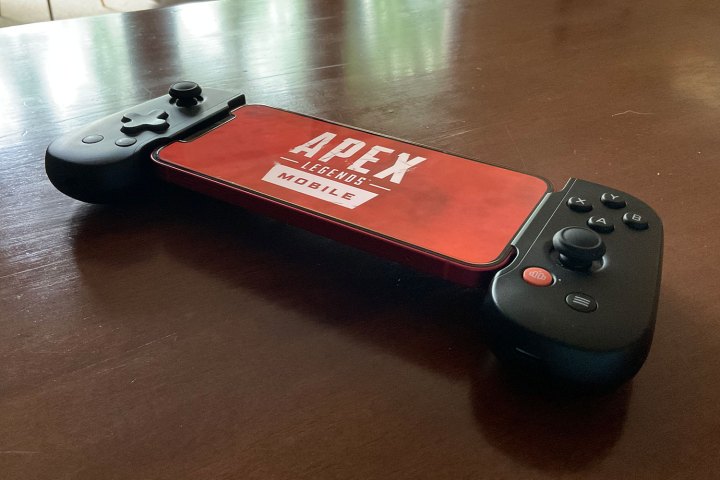
Those on the edge of the mobile gaming space potentially looking to walk away forever because they hate touchscreen controls, or who don’t have an expensive gaming phone, do have another option. I should know, that was me for the longest time. If the on-screen controls are keeping you from enjoying the world of mobile gaming, consider investing in a controller. The Backbone has stole my heart, and opened the door for me to truly appreciate a platform that I felt was leaving me behind.
Editors’ Recommendations

